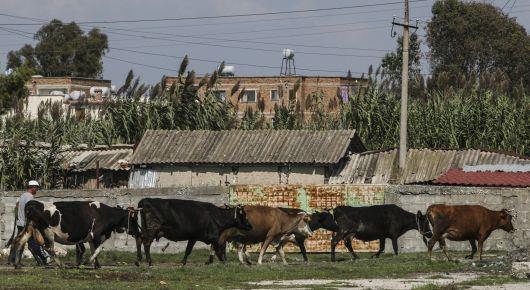Analysis on the state of small farms in Albania can advance their future

As a country with a significant agricultural sector dominated by smallholders, Albania has a strong interest in understanding their situation. A new FAO study on Albanian smallholders is a crucial step towards evidence-based decision-making for the benefit of some 300 000 small farms and the Albanian countryside.
The Smallholders and family farms in Albania – Country study report also provides a set of recommendations, mainly at the policy level, to ensure improvements in areas hindering development, including a set of measures to support transformation of small and subsistence farms into viable and competitive commercial (and semi-commercial) farms.
Proper definitions would back the collection of relevant data and statistics, whose lack of availability and use is identified by the report as a gap.
“Family farms and smallholders are critical for food security of the Albanian population, as well as for poverty reduction in rural areas,” said Morten Hartvigsen, FAO land tenure expert and head of the regional initiative on smallholders and family farms.
Agriculture remains one of the largest employers in Albania, providing livelihood for about half of the employed population. “Low income from agriculture and rural poverty should be reversed through an integrated development of family farms, along with the development of on- and off-farm employment and economic opportunities for both women and men,” Hartvigsen added.
The vegetable sector has the best performance in terms of agrifood trade. However, the study suggests improvements in the access to markets, food safety standards, and value chain coordination. The misuse of pesticides and fertilizers, and the limited access to technology, mechanization, credit, and agricultural innovation, are further limiting factors for smallholder development. The social and physical infrastructure of rural areas need significant upgrading.
FAO recommends improvements in two key areas to advance the future prospects of Albania’s smallholders and family farms: to ensure they have better access to financial resources (loans and grants) and to knowledge through better education and extension services. The latter should cover not only agricultural production related areas, but also business management, marketing, food safety and processing, income diversification, tourism, and environmentally and socially sustainable development.
Moreover, the attractiveness and the future of rural communities can change for the better, if gender equality would be striven for, especially in land ownership and educational opportunities. Sex-disaggregated data would help track progress here. More information on the status of rural women in Albania is accessible in FAO’s Gender, agriculture and rural development in Albania publication.
"The recommendations from this study could support the formulation of the next Country Programming Framework – the multi-annual cooperation agreement between FAO and Albania, contributing to a more inclusive growth, improved rural livelihoods, and the reduction of rural poverty, and eventually to the joint UN Sustainable Development Cooperation Framework document for Albania,” concluded Hartvigsen.
The study report was produced under FAO’s regional umbrella programme aiming for empowering smallholders and family farms for improved rural livelihoods and poverty reduction.
17 July 2020, Budapest, Hungary
